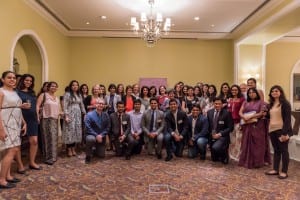‘How to Change the World’ programme to equip South African engineers
By uclqjle, on 21 July 2017
Earlier in the year, UCL’s Department of Science, Technology, Engineering and Public Policy (STEaPP) trained faculty from three South African universities to run a pilot version of UCL’s How to Change the World (HtCtW) programme for undergraduate engineers.
HtCtW prepares engineering and management science students for today’s global challenges by emphasising creative thinking, collaboration and the societal impact of their work.
With funding from the Department of Higher Education and Training in South Africa, STEaPP provided training to faculty from the Central University of Technology (CUT), Tshwane University of Technology (TUT) and University of the Witwatersrand (Wits).
Viv Crone, acting director of the Academic Development Unit of the Faculty of Engineering and the Built Environment (FEBE) at Wits, was one of the academics who took part.
He said: “As an observer I found the experience extremely enjoyable, especially interacting with the student groups, UCL staff and outside industry and academic experts who showed real interest, innovation and passion in addressing and solving the real-world problems.”
HtCtW forms part of UCL Engineering’s Integrated Engineering Programme, which was developed as a response to the changing education needs of future engineering.
The programme provides a blend of scenarios and classroom learning, which take place alongside specialist training and give students from across the faculty the chance to come together to engage in interdisciplinary research and design projects.
“The working in multi-disciplinary groups is particularly valuable as it mimics the requirements and skills necessary for engineers’ future success,” added Viv.
“The emphasis is not only seeking pure technical solutions, but including facets such as environment, finance, sociology, politics and industry in the potential solution.”
Wits FEBE is currently reviewing its engineering curriculum and initial discussions have been held to introduce a similar course into their engineering programme.
STEaPP will provide further curricular support and materials before a UCL team flies out to Wits, CUT and TUT later in the year to run pilot versions of HtCtW with students over three days.
 Close
Close



